Text
Victoria Monét - Party Girls/Baby Boy (Coachella '24) 🐆🤎
24 notes
·
View notes
Text
Victoria Monét performing her grammy award winning song On My Mama at Coachella 🐆🤎
67 notes
·
View notes
Text
#giddy up now diggadont diggadont Daddy can't leave me 'lone#leave me 'lone damn if I do damnit if I don't#Lady with a whip want what she wanna want okay#> i literally replayed this part for like 30 minutes it's been driving me nuts#beyoncé#music#audio
766 notes
·
View notes
Text
Alexa, play "Drama" by aespa
#motogp#imma add my two cents in the tags but i understand you having strong feelings about your religion and church#but it's another thing to accuse folks of bastardizing it and making it seem like the poster is trying to make it seem like he doesn't#have “personality” like no said that and no one inferred that#it was a joke you didn't vibe with and that's it#and that’s okay#fabio got a sexy nun tattooed on him and that's okay. it's only about the aesethetic#not the religion#anyway lemme get off of my soap box now#fabio quartararo#damn i got a typo ***no one#update: lemme step back on my soap box cause i pretty much neglected talking about the main point.#the type of story fabio posted is stuff we see people post all the time when people are going thru the trials ans tribulations#devout religious person or not#so the poster literally said that they didnt know if he was Christian or not hence the caption and it was funny (to people)#even if they knew#it's intended to be a light hearted joke. like i see religious people do this all the time and not take themselves seriously even though#they're going through it#anyways#lemme step off my soap box AGAIN and put the same effort into my school work#***psa not saying you can't feel how you feel but don't talk to people out the side of your neck
4 notes
·
View notes
Text
Latin American vs. American Latino - Is there a difference?
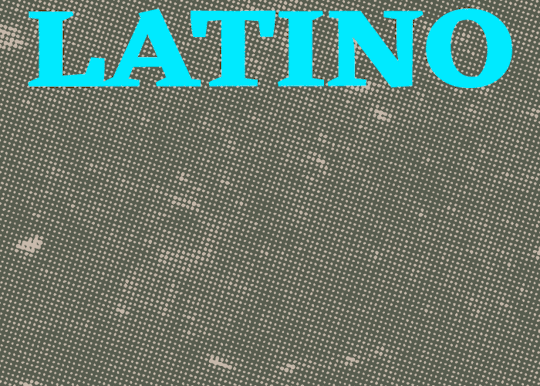
(credit: remezcla.com)
I developed this blog based on a lecture my professor gave in class one day. He talked about an article, which will be linked below in the reference section, about how Latino and Latin American history are being conflated and taught as a catch all course in academics when the histories of the two group have variance. I also want to touch on other topics that have relevance to both as well.
But in short answer, yes, there is a difference. Latin American refers to anyone of Latino descent from the Latin American countries of the American continent. American Latino or Latino (American) refers to American (USA) people of Latino descent. It can be argued that because both references refer to Latinos that it is sufficient to just teach all the histories together, but American Latino specifically refers to the history of the American group of this ethnicity and should be a course by itself. In a perfect world, there would be courses available and taught for all the countries in Lat. Am., but everything is touched upon in one course, and that means that all bases can not be covered. It is like in baseball when someone hits a single, double, or triple, and then someone hits a homerun; all the bases are never going to be loaded.
Note: I will be focusing on the Latino aspect of this issue and not the Hispanic aspect, although it is just as significant of a topic as well.
What is Latin America?
Latin America is a group of 33 countries that extend from Mexico to Chile and Argentina. Its history began in the late 15th century during Christopher Columbus' 'infamous' trips to the Caribbean and other Latin American countries during the European colonization of the American continent (Britannica, 2021). Like the Spanish, other Western European powers came to the continent during the discovery of the New World. They were looking for the expansion of their respective empires through religious, political, and economical endeavors.
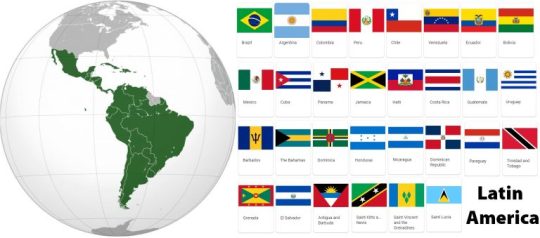
(https://www.countryaah.com/latin-american-countries/)
The name Latin America is based on the Romance languages of the region's colonizers: France, Spain, and Portugal (Delvin, 2019). This is why Guyana and Suriname are not considered to be part of the subdivision, as they were colonized by the English and the Dutch, respectively (Guyana was first colonized by the Dutch, but English is the country's official language). Latinos are typically associated with those from the Spanish speaking countries, such as Mexico or Colombia, but this does leave out a whole multitude of countries. Haiti, the Bahamas, Saint Kitts, Saint Vincent, etc. are also a part of the Caribbean and typically associated with that.
There has been debate on which countries are considered to be in Latin America from discussions that I have seen online. This mirrors the issue of race, ethnicity, and nationality that I will talk about later on in the blog. While the name Lat. Am. is based off of Romance languages, France, Spain, and Portugal are not considered to be Latin/Latino countries. Their geography is in a different hemisphere that prevents them from being considered as so.
The Academic Issue
Reiterating from the beginning, there has been recent debate on the teaching of both Latin American and Latino history together. According to Celso Thomas Castilho and Sara Kozameh, there has been a recent uptick in positions being offered of "Modern Latin American" history that conflates the two together (Castilho & Kozameh, 2024).
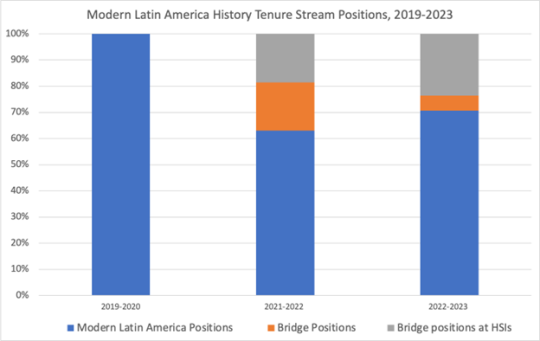
(Fig. 1: Tenure-track positions in modern Latin American history, 2019–23.) (Castilho & Kozameh, 2024)
I understand appealing to the market to broaden the number of applicants to correlate with the increased presence of students, but it seems a bit disingenuous. It is like those marketing ploys where the job description does not list all of the job expectations before a person takes the job and they end up doing more than what they signed up for. And doing it this way would not guarantee that the course(s) would be taught to their greatest potential. Execution is another issue that I have noticed. Since the history of Lat. Am. is so colorful, in the academic setting, only major ideas of some the countries are taught. With the addition of the USA perspective, it ends up being an even more gigantic subject to learn about. I think we, as a people, have issues with conflation because turning complexities into simplicities makes it easier for us to address and categorize. But at the same time, that simplification causes topics like this to lose their nuance and more obvious differences that help us distinguish between two or more things.
To me, along with correcting the advertisement of the positions, the best course of action (where applicable) would be to create a major dedicated to Latin American and Latino American studies. Students would be able to learn in depth about the countries, cultures, politics, etc. and professors would be able to teach without worrying about rushing through topics and not being able to touch upon what they feel is necessary to touch upon. And depending on the size of the program, the professors could be hired and teach in relation to their EXACT specialization(s).
Here are some ideas for courses that I have based upon what I have seen from the institution that I am attending and classes that would fit into the categories (not meant to be exhaustive):
Introductory Courses
Introduction to Latino/Hispanic History
Introduction to Latin American History
or country/regional specific ones, like,
Brazilian History
North Latin American History (Central America)
Geography of Latin America
Latinos in the United States
Then, areas of specializations,
Voodoo in the Caribbean
Indigenous Practice Preservation
Putting the 'Afro' in Afro-Latino
Latin American Geopolitics
etc.
In the video below, I briefly talk about the topics in relation to the university I am attending and how the school has arranged the courses.
youtube
Here are screenshots of some of the courses that are included in the minor:
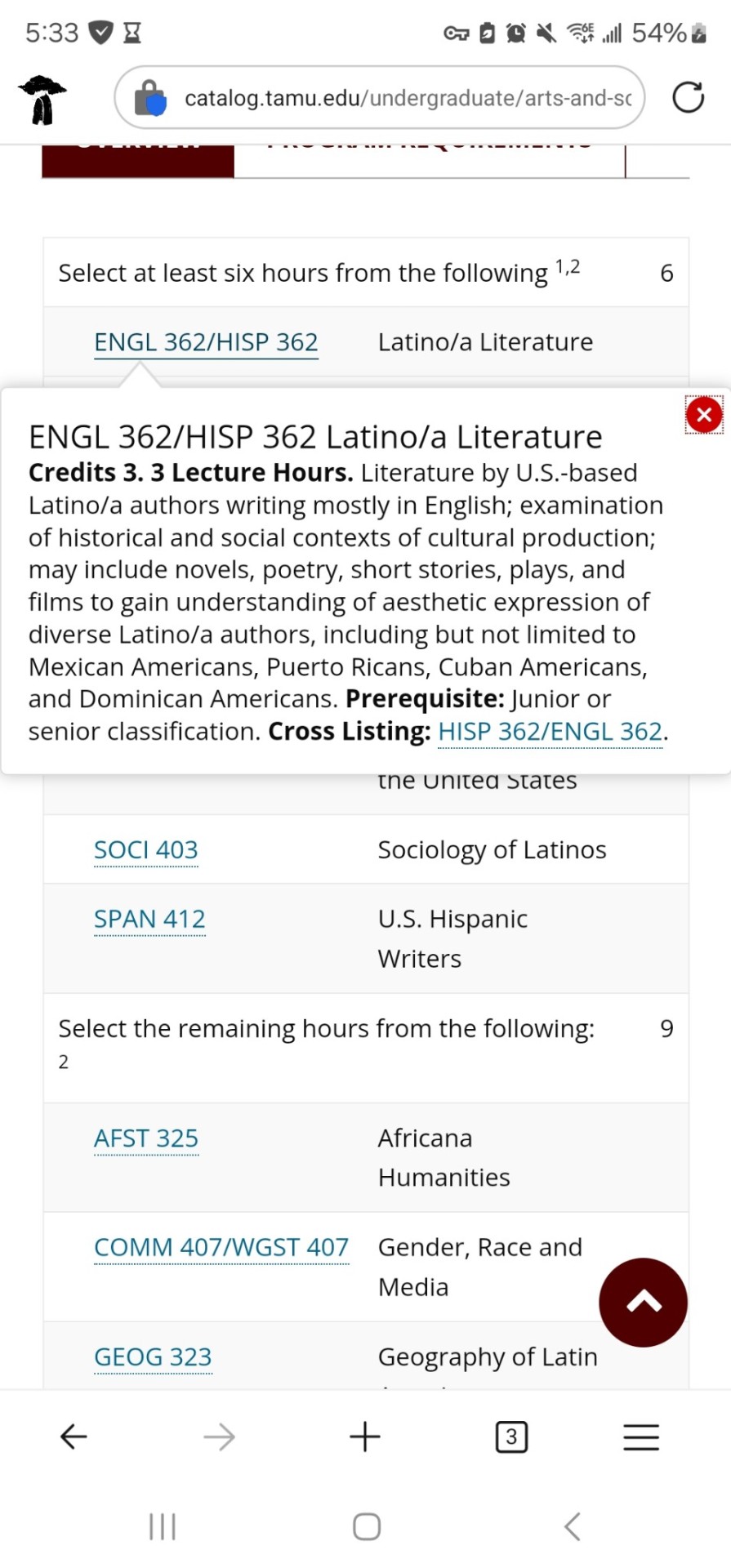


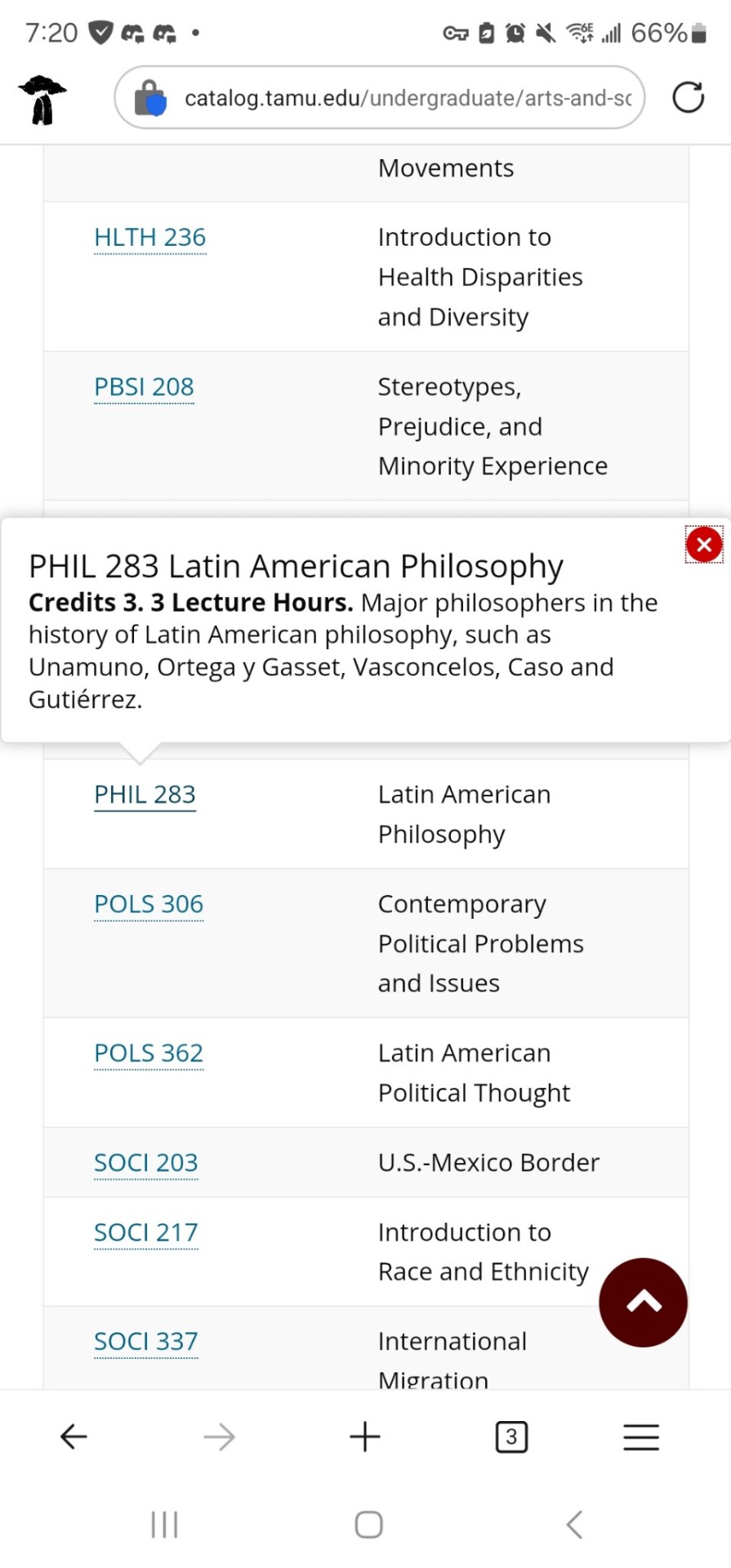
The Differentiation Between Race, Ethnicity, and Citizenship (Nationality)
youtube
There is a lot of debate on race, ethnicity, and citizenship (nationality), which is a "hot commodity" among Latinos as well. Race is a subjective way of labeling and designating people to groups where everyone has physical similarities. For example, being Black in America is different from being Black in India. Here in America, it is based on skin color, but has extended to encompass and create a culture that is unique to people of the Black race, regardless of their hue type. Having "black skin" in India is still based the caste system or the class people come from. The darker your skin color, the most likely you are associated to be poor and/or are from the working classes.
Ethnicity is based on the biological traits in which relate people together and the languages, cultures, religions, etc. that they share. Being Latino is an ethnicity, but people also have other ethnicities depending on the groups of people that reproduced with each other.
Citizenship (or nationality) is someone's allegiance to a country that they reside in, whether they were born there, gained it through a parent, or became nationalized. Citizenship and ethnicity are often used interchangeably and are confused as a result. In most countries, people's ethnicity is the same as their nationality. For example, someone could be of a Dutch ethnicity and nationality, and someone could be of a Japanese ethnicity and nationality. But, they are not synonymous. If one of these people became a naturalized citizen in another country, their nationality would change. Their ethnicity stays the same because they can not change their ethnicity like someone could (theoretically(?)) change their race.
I bring this up because during the process of writing about race, I was reminded of the meme, "I no Black, I Dominican," when people have asked Black Dominicans if they were Black. The people who say that are technically not wrong because they are Dominican, but there is nuance involved. Are they saying that because they do not want to be associated with their Blackness, or were they genuinely not raised to think about their skin color in that way? I have personally seen Latinos, in the USA, and in Lat. Am., place more emphasis on their ethnicity(ities) and nationality rather than the race(s) they would belong to if they were to mark it on a questionnaire. Identifying by race can be messy, for a lack of a better word, because it is so subjective. People change their mind about their race or use a label that outsiders do not think are appropriate for that person. For example, a Mexican person might mark that they are white for their race and then fill out the appropriate information for the Hispanic/Latino section. Another person of a different race might disagree with them on that; "Bro, you're not white. You're mestizo. There's a difference" (Britannica, 2024). But it is at that point where you would have to shrug your arms because your interpretation of the same thing is different.
Conclusion
As I have gotten further into this piece, I can not tell if I'm conflating the two myself or not. The fact that Latino can and does encompass people of Latin descent from the US and the American continent may be what is throwing me off. I am starting to speak in general terms and as a result, am merging the two. And this is the exact is the article touches upon, even if the authors are specifying its occurrence in the academic field. I've also developed more questions as a result. If context is apparent, does saying "Latino American" seem redundant? How does the USA versus America debate affect this? Does it hold any weight? How many people refer to themselves as Latin American?
References
Aldersgate Camp & Retreat Center. (2020, July 3). Race, ethnicity, and nationality... what is the difference?. YouTube. https://youtu.be/lO4Q_dHnh18
Encyclopædia Britannica, inc. (2021). Latin America Summary. Encyclopædia Britannica. https://www.britannica.com/summary/Latin-America
Encyclopædia Britannica, inc. (2024, Jan 5). Mestizo. Encyclopædia Britannica. https://www.britannica.com/topic/mestizo
Delvin, T. M. (2019, March 14). Why is it called “Latin” America? Language for Life - Babbel.com. https://www.babbel.com/en/magazine/why-is-it-called-latin-america
Intersecting lines: Are academic job ads conflating Latino and Latin American history?. Home. (n.d.). https://www.historians.org/research-and-publications/perspectives-on-history/february-2024/intersecting-lines-are-academic-job-ads-conflating-latino-and-latin-american-history?fbclid=IwAR0UucPdFs5LPgHuDMLpazGiKMnJJrvx5RoL7NVgp4W7NR9MeZLVgUgU3DQ
List of countries in Latin America. Countryaahcom. (n.d.). https://www.countryaah.com/latin-american-countries/
Sáenz, L. L. (2018, September 17). Hispanic vs. Latino vs. Latinx: A brief history of how these words originated. Remezcla. https://remezcla.com/features/culture/latino-vs-hispanic-vs-latinx-how-these-words-originated/
Texas A&M University catalogs. Latino/a and Mexican-American Studies - Minor < Texas A&M Catalogs < Texas A&M University, College Station, TX. (n.d.). https://catalog.tamu.edu/undergraduate/arts-and-sciences/sociology/latino-mexican-american-studies-minor/#programrequirementstext
Appendix



These are photos I took during the time I was recording for my video.
0 notes
Text

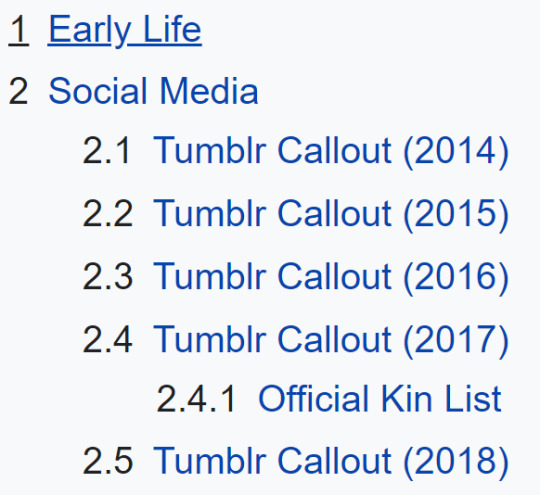
118K notes
·
View notes
Text




I brought cookies.
Ah, so thoughtful not to make them yourself.
Pedro Pascal on Saturday Night Live (Oct 21, 2023)
#YOU DID NOT JUST THROW AWAY ALL THOSE DELECIOUS DRY AF CRUMBLY BUTTER COOKIES#YOU EAT THAT SHIT AND THEN YOU REPURPOSE THE TIN LIKE A FAMILY FUCKIN HEIRLOOM#<<<< that for real hurt my soul
10K notes
·
View notes
Photo

Dec. 1, 2015 | Gaza City, Palestine
Palestinian schoolgirls walk in front of a rainbow illuminating the sky over Gaza City’s shore.
24K notes
·
View notes
Text
Fellow epileptics, I have some fantastic news for you. There’s an add-on that makes the internet safer for us. It’s called Epilepsy Blocker. The creator had me test it out, give feedback, he made adjustments, and it works great. It may even help those with migraine disorders that are triggered by the same thing that messes with those of use with photosensitive epilepsy (mine is a case of being absurdly sensitive).
This is the only add-on I’ve encountered made specifically for those of us with epilepsy. It’s not a well known add-on, but I hope to see that change.
69K notes
·
View notes








